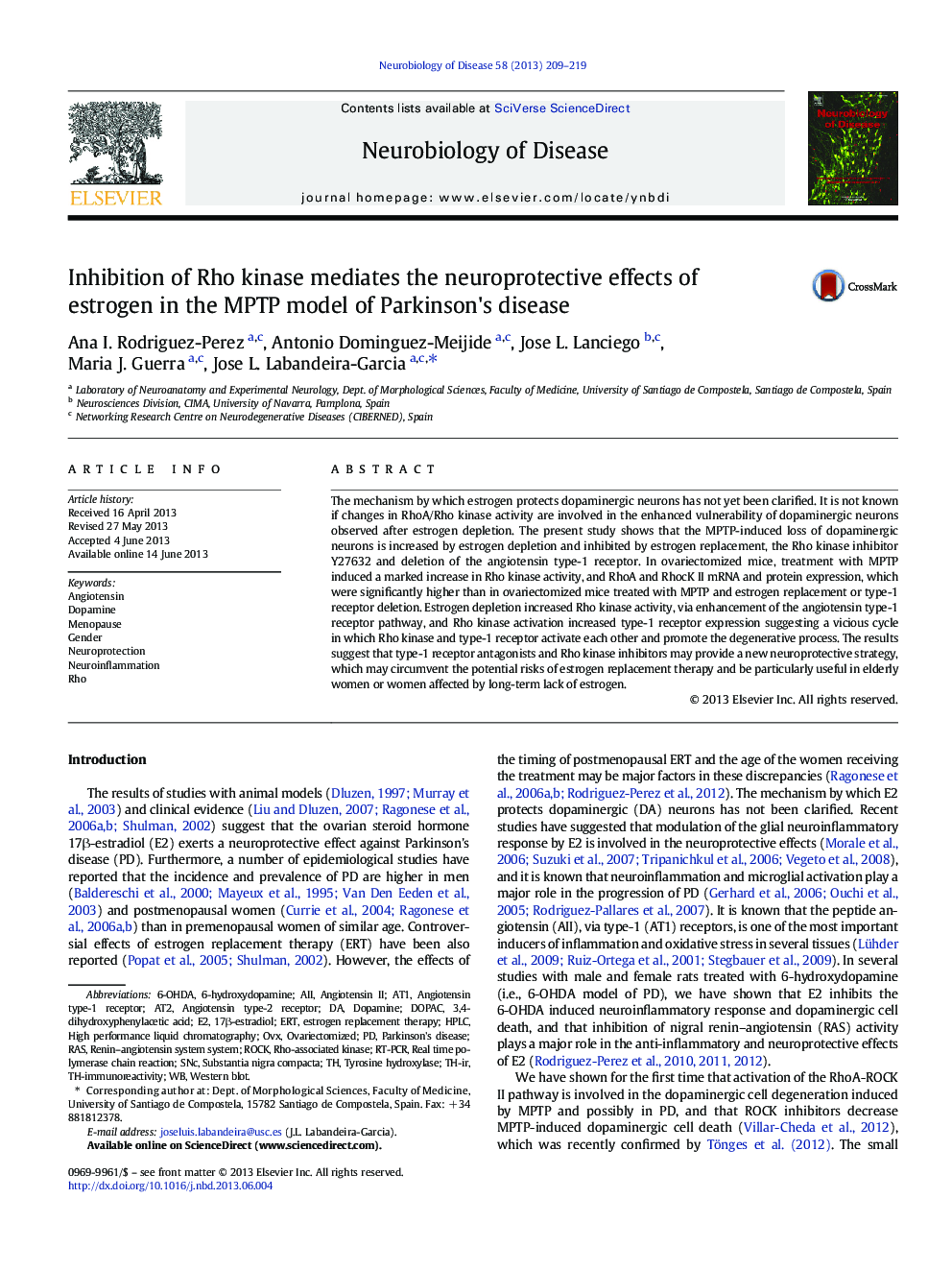| Article ID | Journal | Published Year | Pages | File Type |
|---|---|---|---|---|
| 6022235 | Neurobiology of Disease | 2013 | 11 Pages |
â¢Estrogen depletion increases Rock activity via angiotensin type-1 receptor pathway.â¢Rock overactivation increases vulnerability of dopaminergic neurons.â¢Rock and type-1 receptor activate each other and promote the degenerative process.â¢Angiotensin antagonists and Rock inhibitors provide new neuroprotective strategies.â¢They circumvent the potential risks or inefficacy of estrogen replacement therapy.
The mechanism by which estrogen protects dopaminergic neurons has not yet been clarified. It is not known if changes in RhoA/Rho kinase activity are involved in the enhanced vulnerability of dopaminergic neurons observed after estrogen depletion. The present study shows that the MPTP-induced loss of dopaminergic neurons is increased by estrogen depletion and inhibited by estrogen replacement, the Rho kinase inhibitor Y27632 and deletion of the angiotensin type-1 receptor. In ovariectomized mice, treatment with MPTP induced a marked increase in Rho kinase activity, and RhoA and RhocK II mRNA and protein expression, which were significantly higher than in ovariectomized mice treated with MPTP and estrogen replacement or type-1 receptor deletion. Estrogen depletion increased Rho kinase activity, via enhancement of the angiotensin type-1 receptor pathway, and Rho kinase activation increased type-1 receptor expression suggesting a vicious cycle in which Rho kinase and type-1 receptor activate each other and promote the degenerative process. The results suggest that type-1 receptor antagonists and Rho kinase inhibitors may provide a new neuroprotective strategy, which may circumvent the potential risks of estrogen replacement therapy and be particularly useful in elderly women or women affected by long-term lack of estrogen.
